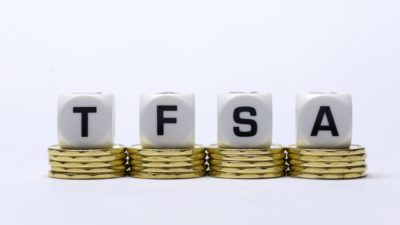Beaten-down real estate investment trusts (REITs) are great for getting a good income while you wait for their share prices to appreciate. Should investors buy H&R Real Estate Investment Trust (TSX:HR.UN) and get its 7.2% yield?
About H&R REIT
H&R REIT has traded between $18 and $25 in the last year. At $18.70, it’s very close to its 52-week low and yields 7.2%. At the end of September it was Canada’s biggest diversified REIT with assets of about $13.8 billion. Based on its market cap, it was the second-biggest REIT in Canada at the end of September.
Some of H&R REIT’s trophy assets include The Bow in Calgary, two Gotham Centres in New York, the Scotia Plaza in Toronto, the Hess Tower in Houston, the Place Bell in Ottawa, and the Corus Quay in Toronto.
Operating income diversification
H&R REIT owns retail, office, industrial, and residential properties. At the end of September it owned 512 properties, and 53% of its operating income came from office properties, 39% came from retail properties, and 8% came from industrial properties.
Geographically, 34% of its operating income came from Ontario, 28% came from the United States, 28% came from Alberta, and 10% came from other Canadian provinces.
Albertan exposure
With oil prices being stubbornly low, investors are likely most concerned about H&R REIT’s Albertan exposure. In the third quarter for its Albertan portfolio, 62% of its operating income came from office properties, 33% came from retail properties, and 5% came from industrial properties.
Particularly, Encana contributed 72% of its Albertan operating income. Although Encana is BBB rated and its lease expiry is in 2038, its falling earnings and cash flows won’t improve until oil prices recover.
Is its 7.2% yield safe?
H&R REIT’s top 15 tenants contribute 42% of gross revenue and 12 of them have investment-grade credit ratings. Of course, its top tenant is Encana, which contributes 11.6% of rental income. Its other top tenants include BCE Inc., TransCanada Corporation, Canadian Tire Corporation Limited, and Bank of Nova Scotia. They contribute 16.2% of rental income.
Unitholders may be relieved that the chief executive officer, founders, and trustees own about 6% of H&R REIT, so their interests are aligned with unitholders’ interests. The REIT has maintained strong occupancy of at least 96% since 1997. Further, in the third quarter H&R’s payout ratio was 67%. With some margin of safety, its monthly distribution is a safe source of income for now.
Conclusion
H&R REIT’s share price has been under pressure likely because of its Albertan exposure. As a result, investors can buy H&R REIT for an above-average yield of 7.2% and at a 20% discount from its normal multiple. If you believe oil prices will head higher, H&R REIT is a potential investment to hold to get a handsome yield while you wait for its price appreciation.







